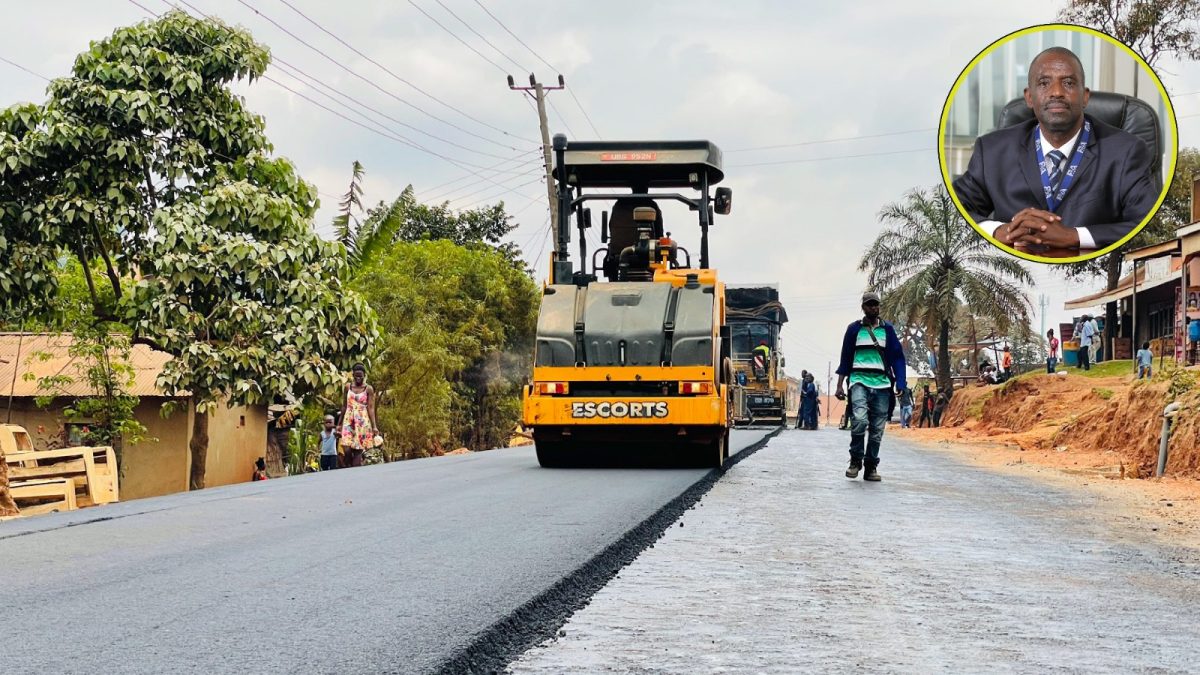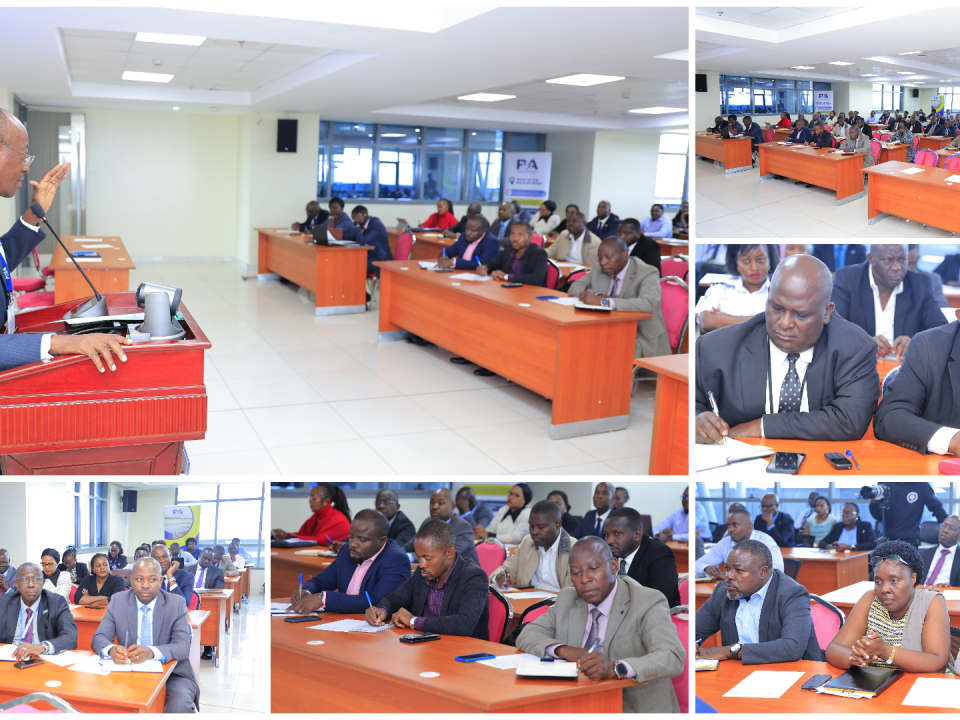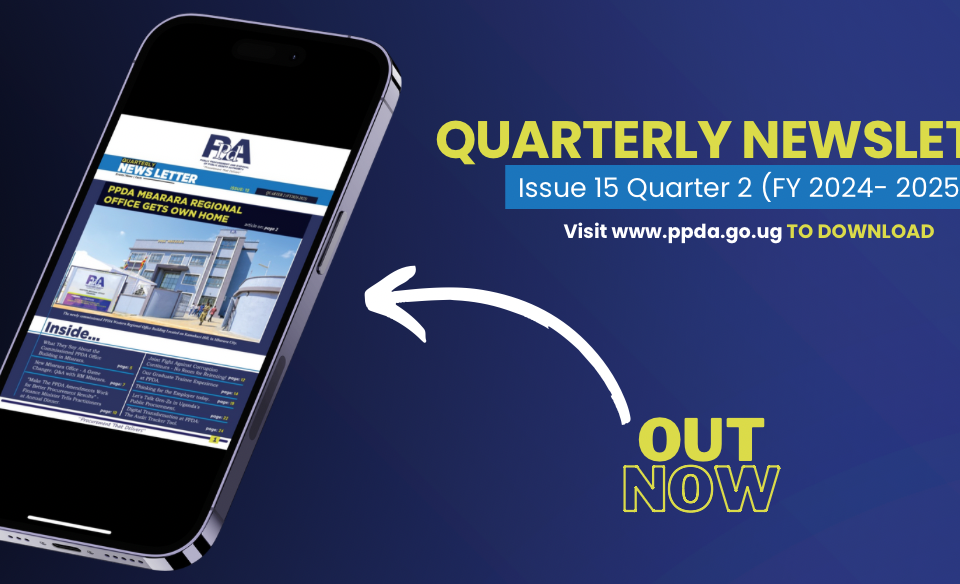Completing government projects on time will spur national development – By Cris Magoba

How to Manage Environmental and Social Hazards in Public Procurement – By Benson Turamye
May 10, 2023
Here is why accounting officers are critical in curbing private sector corruption.
November 13, 2023Completing government projects on time will spur national development.
By Cris Magoba
Every financial year, the government secures and allocates funds for service delivery to the citizens through the different ministries, departments and agencies. Service delivery in government is essentially a public procurement function. And thus, the nexus between public procurement and delivery of goods, services and works cannot be overemphasized because upwards of 60% of the national budget is spent through the public procurement processes.
Service delivery is also the main basis upon which the development trajectory of the country is forecast. However, the development indicators forecast at the beginning of every financial year, are realized only if there is efficiency in the public procurement processes. And this efficiency is essentially a time factor.
Shorter lead times translate into efficient service delivery and improved budget absorption. Unfortunately, many a time, this does not happen. That is why, every financial year, government entities return unutilized funds to the treasury.
According to studies and audits by the Public Procurement and Disposal of Public Assets Authority, (PPDA), for instance, the findings for the FY 2020/21 reveal that only 60% of contracts by value were completed within the contractual timelines. In other words, 40% of the procurements were mired in delays to the detriment of the citizens who would be the beneficiaries of efficient service delivery. And worse still, delays in the completion of government projects is not a mere inconvenience. Delays are practically the same as additional costs, which costs are born by the taxpayer. This is because delays may lead to amendments in the contracts, which amendments will translate into additional costs.
While presenting the 2023/2024 budget to parliament, Finance Minister Matia Kasaija was unequivocal in cautioning entities against entering contracts without ensuring that the projects sites are free from encumbrances. The minister’s warning came against a backdrop of reports of government projects failing to take off or stalling because contractors are denied access to the sites owing to unresolved ownership and compensation conflicts, among other reasons.
The PPDA, in various studies, has identified delays in the commencement of projects even when all the paper work has been done and the contract signed. This could be due to several reasons among which are securing the project site and compensating persons whose property has been affect by the project or who may require resettling. The implication here is that adequate homework was not done during the needs identification and procurement planning stages. Thus, contract executions are delayed due to factors that should have been envisaged and avoided.
There is an interesting case in the country with regard to the Support to Municipal Infrastructure Development Progamme (USMID). Since September 2015, the government has been implementing USMID in selected cities, municipalities and refuge hosting communities across the country. The programme includes upgrading road infrastructure from gravel to bitumen, installation of security lights and signalized road junctions or traffic lights. Admittedly, the programme has by and large transformed many upcoming cities and municipalities across the country. The infrastructure and aesthetic appeal of many of these urban areas is worth beholding. In spite of these successes however, the cancer of delays that bedevils many procurements in the country did not spare this programme.
Relocation of utilities, (National Water and Sewerage Corporation sewer lines, fibre optic cables, CCTV camera infrastructure and power lines), has been an overriding factor in delaying USMID projects. The PPDA audits established that there was room for even better performance, if these site impediments were addressed in time.
Public procurement is a multi-stakeholder process. It begins with needs identification, usually by elected leaders, (the politicians), in conjunction with the appointed leaders, (the civil servants). This is followed by procurement planning, this time, by civil servants but ultimately with the approval of the political leaders. The procurement plans are by and large executed by the civil servants but with the oversight role of political leaders, and sometimes, civil society.
Different players therefore, have a duty to up their efforts to realize procurement processes that deliver on time and in budget. There is a misnomer that the heads of the procuring and disposing units, usually known as procurement officers, are the sole players in procurement. Yes, procurement officers are critical because how they synthesize the processes may delay or expedite a project. But the underlying causes of delays are multifaceted, and beyond what an officer can singly handle.
We may also want to be reminded that the PPDA Act, notably Section 95, provide for punitive action to public officials, who without reasonable excuse, delay government projects.
The mantra of the PPDA is “procurement that delivers”. However, this is at times frustrated. The magic wand is adequate homework before any procurement commences. If the entity is not adequately prepared, the procurement process should not commence, or if it does, a contract should not be signed, at least according to the counsel of Hon Matia Kasaija, the finance minister.
The writer is the Manager, Corporate & Public Affairs, Public Procurement and Disposal of Public Assets Authority, PPDA.




